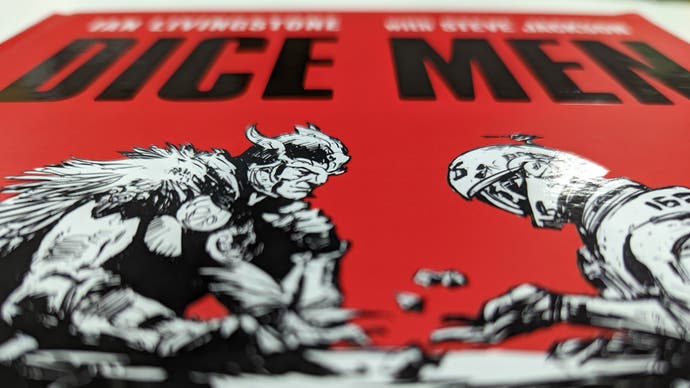Dice Men: The Origin Story of Games Workshop is the quintessential coffee table book
A treasure trove of nostalgia.
I recently heard the story of Fighting Fantasy and Games Workshop firsthand, from creators Ian Livingstone and Steve Jackson. You can listen to it in podcast form or read an article I wrote about it. But there was something I couldn't do, an element of the story I couldn't give, and it's one that Ian Livingstone's brand new book Dice Men: The Origin Story of Games Workshop absolutely nails - and that is to show you the history.
Through dozens of photos and letters and ledgers and scribbled ideas for business names, Livingstone finds a way to transport us back into history in a way I never could. Dice Men is rammed with memorabilia - and rare, valuable memorabilia at that. How about pictures of the first Dungeons & Dragons printing runs ever to hit the UK? They're here - check. How about the first editions of the iconic White Dwarf magazine, or the Owl & Weasel newsletter that predated it? Check. Photos of the very first Warhammer-like miniatures the company made: check. This is a treasure trove of nostalgia.
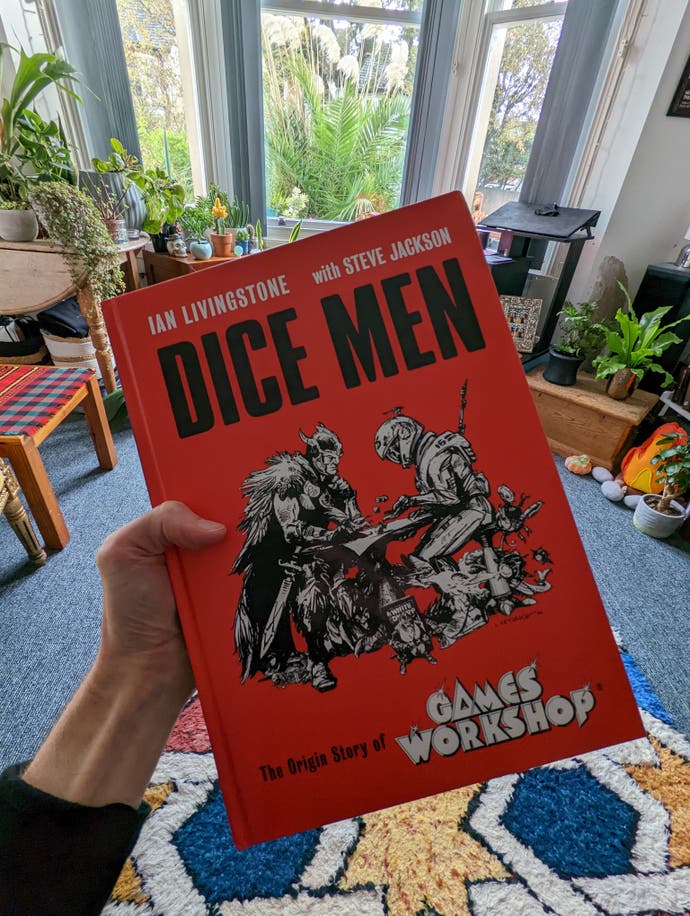
It's these historical mementos that really bring the history Livingstone recounts, which can sometimes be a bit dry, to life - though I did particularly enjoy the anecdote about Steve getting shat on by a bird one day and having no option but to sit with it on him while the pair drove somewhere, accompanied by the sight and smell of the bird's bottom. It prompted a deep dive into why bird's poo is white, which Livingstone recounts his findings on - so it's an educational book, too.
And it's stories like this, in conjunction with all the messily made notes on pieces of paper, and photos of the pair road tripping across the US - looking every bit like two young men, not businessmen - that reinforce a really important part of the Games Workshop tale: these two (originally three) people were ordinary. They didn't come from anywhere remarkable. But with passion and hard work and a liberal dose of luck, they achieved something historic. I can't imagine a gaming world without them.
Ian Livingstone's background with print media (White Dwarf) also shows in abundance. This book is beautifully laid out. You know the moment you see that striking cover, featuring that original Games Workshop image by Ian McCaig, who would go onto illustrate Fighting Fantasy books forever, that you're in for a visual treat - and you are. The pages are designed with care and always with artwork or pictures or something to look at. I don't think there's a single page of text on its own. Dice Men is everything a coffee table book should be.
And though Livingstone's voice dominates it, there are sections contributed by Steve Jackson as well as comments from key Games Workshop players like Brian Ansell and original employees. There's even a touching letter from Gail Gygax, wife of the late Dungeons & Dragons co-creator Gary Gygax, honouring Livingstone's work.
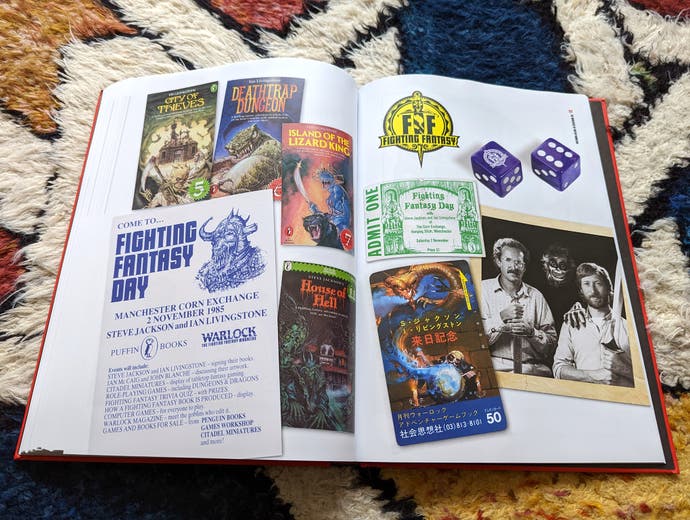
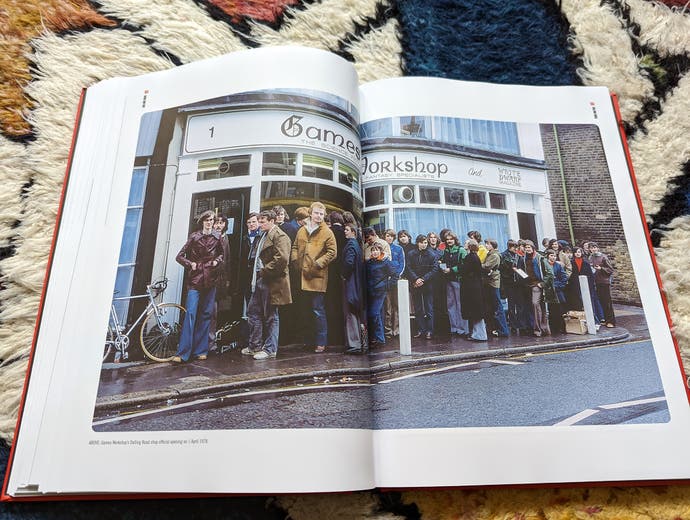
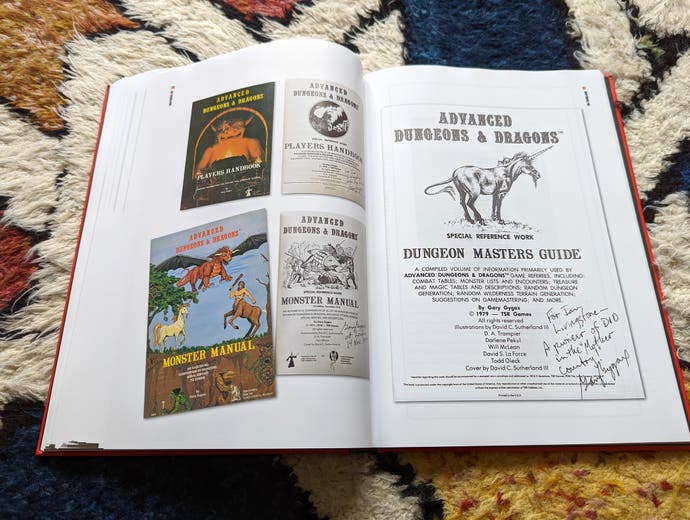
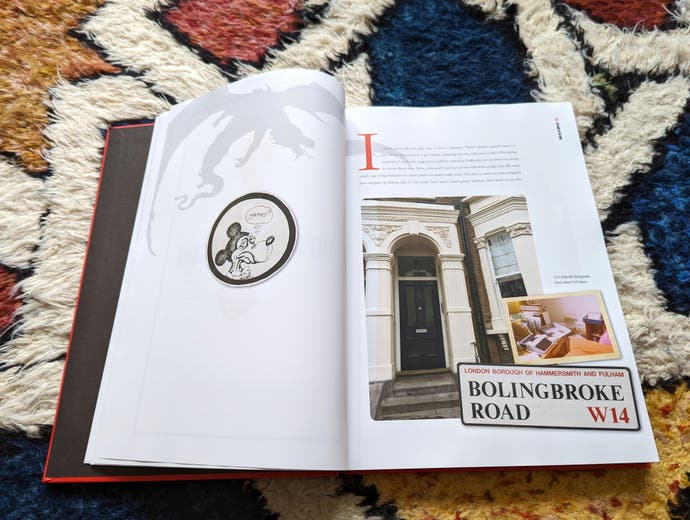
After all, Gygax and D&D were an enormous part of this early-life Games Workshop tale. Games Workshop was the company that brought D&D to Britain and Europe, and in doing so, kickstarted their business. Without D&D, things would have been very different.
It meant that Gygax, and Livingstone and Jackson, formed a strong business relationship and a mutual admiration and friendship. The book even recounts how, in 1979, when the three-year exclusive distribution deal for D&D came to an end, Gygax pitched a company merger to Livingstone and Jackson, to get them formally working with him and on the board. But they turned him down because they didn't want to split their time between the US and the UK, and Gygax, apparently, couldn't believe it. But it proved a fateful decision as Games Workshop went from strength to strength and TSR struggled, with Gygax eventually forced out of the company he'd created, in the mid-80s.
Dice Men isn't an exhaustively long book, and of course it doesn't chart the fate of Games Workshop past Livingstone and Jackson cashing out in 1985, or their subsequent lives in video game land, but there's still plenty of history covered within. And if Games Workshop touched your life in some way, and you fancy leafing through some gaming history, I can't recommend it enough.
Full disclosure: Dice Men was originally crowdfunded on Unbound and I backed it there (I'm glad I did). You can buy copies directly from there, or from other bookshops, now.
